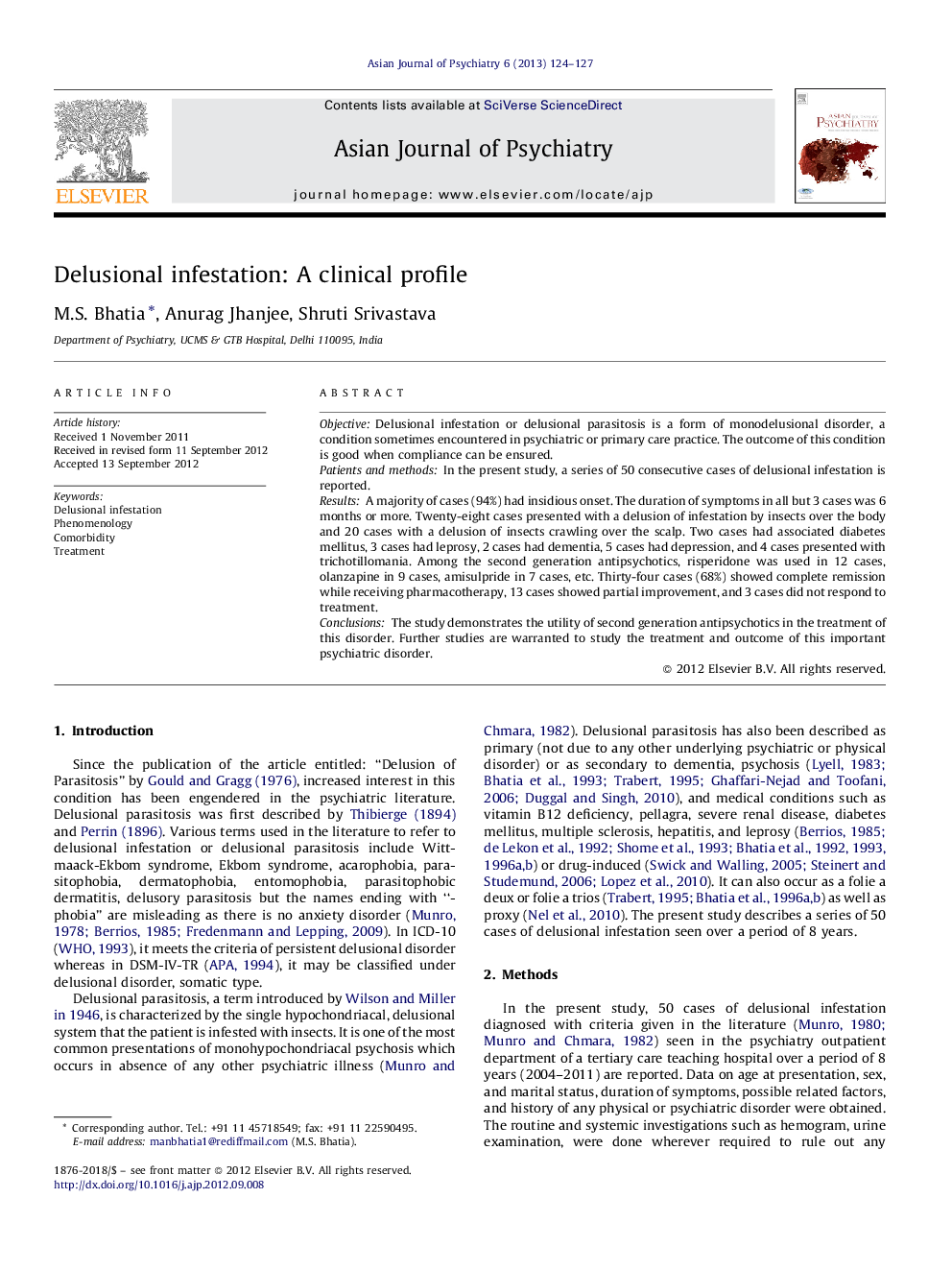| Article ID | Journal | Published Year | Pages | File Type |
|---|---|---|---|---|
| 315511 | Asian Journal of Psychiatry | 2013 | 4 Pages |
ObjectiveDelusional infestation or delusional parasitosis is a form of monodelusional disorder, a condition sometimes encountered in psychiatric or primary care practice. The outcome of this condition is good when compliance can be ensured.Patients and methodsIn the present study, a series of 50 consecutive cases of delusional infestation is reported.ResultsA majority of cases (94%) had insidious onset. The duration of symptoms in all but 3 cases was 6 months or more. Twenty-eight cases presented with a delusion of infestation by insects over the body and 20 cases with a delusion of insects crawling over the scalp. Two cases had associated diabetes mellitus, 3 cases had leprosy, 2 cases had dementia, 5 cases had depression, and 4 cases presented with trichotillomania. Among the second generation antipsychotics, risperidone was used in 12 cases, olanzapine in 9 cases, amisulpride in 7 cases, etc. Thirty-four cases (68%) showed complete remission while receiving pharmacotherapy, 13 cases showed partial improvement, and 3 cases did not respond to treatment.ConclusionsThe study demonstrates the utility of second generation antipsychotics in the treatment of this disorder. Further studies are warranted to study the treatment and outcome of this important psychiatric disorder.
► 50 consecutive cases of delusional infestation were studied. ► Majority had insidious onset with duration more than 6 months. ► Different second generation anti-psychotics were used for treatment. ► There was complete remission (68%) or partial remission (26%). ► Atypical anti-psychotic drugs are useful in treatment of delusional infestation.
